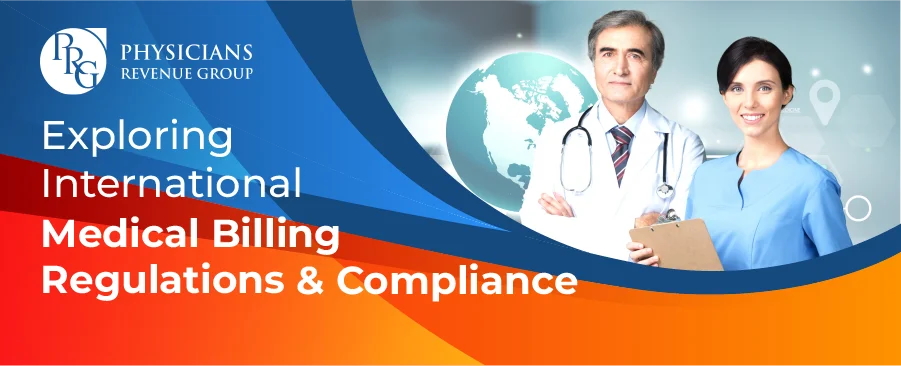
Email: info@prgmd.com | Call: +1 (630) 242-6474
Business hours: 9:00 to 5:00 | Monday to Friday
Email: info@prgmd.com | Call: +1 (630) 242-6474
Business hours: 9:00 to 5:00 | Monday to Friday

Table of Contents
ToggleWorking in and around the complexities of international medical billing has become a concern for medical billing services worldwide. Ensuring that these services operate within the bounds of HIPAA compliance in medical billing is not just a matter of legal obligation but also essential for safeguarding patient confidentiality and maintaining the integrity of healthcare systems across borders.
To that effect, let’s explore the unique:
Medical billing is rather complex on a global platform, especially with international patients. In such cases, to maximize revenue and avoid costly errors, healthcare billing professionals must thoroughly understand the unique challenges along with the best practices of international medical billing.
One of the first critical challenges in international healthcare billing is working around different healthcare systems and payment structures/modes. Every country’s healthcare system has its own set of regulations and requirements. Furthermore, understanding the details here is vital to avoid denied claims and even delays in reimbursements.
Here, for instance, in some countries or healthcare systems, patients might be responsible for paying out their medical bills upfront and then go about claiming reimbursements from their insurance providers. International healthcare providers must be equipped to offer detailed and accurate invoices and further help patients navigate the entire reimbursement process.
Managing the cultural barriers and language is yet another challenge that arises with global billing services. Here, effective, precise, and accurate communication is vital for obtaining the accurate/necessary patient data. Furthermore, this data must be accessible and understandable for all parties involved. Moreover, international medical billing professionals must be skilled in working with interpreters, translating documents, and offering concise and clear explanations of complex billing concepts.
To overcome all of these challenges, there are many employable strategies that medical billing personnel can implement.
The strategies include:
Compliance with the regulatory and legal requirements is vital for medical billing. The rules governing patients’ consent, information, and other aspects of healthcare service delivery differ from country to country. Variation in such regulations leads to billing challenges and complexities for international healthcare providers. Such challenges result in loss of revenue and even administrative burdens.
How to curb these differences for an effective execution of the international healthcare billing process?
Identifying the need for simplified global medical billing regulations, multiple organizations and efforts are working to pave the way for harmonization. Such initiatives aim to standardize documentation, coding, and efforts for cross-border billing services. Doing so makes working in the global healthcare setting easier for healthcare providers and patients.
While harmonization efforts have made significant strides, there is still work to achieve complete standardization and ease the burden on healthcare providers and patients navigating international medical billing.
Let’s discuss three essential harmonization efforts:
Share:
Categories
Recently Added

What is an ABN in medical billing?

What does a Clearinghouse do During Claims Submission?

What is EOR in Medical Billing?
We Would Love to Assist You!
We treat your data confidentially and don’t share any information with a third party.